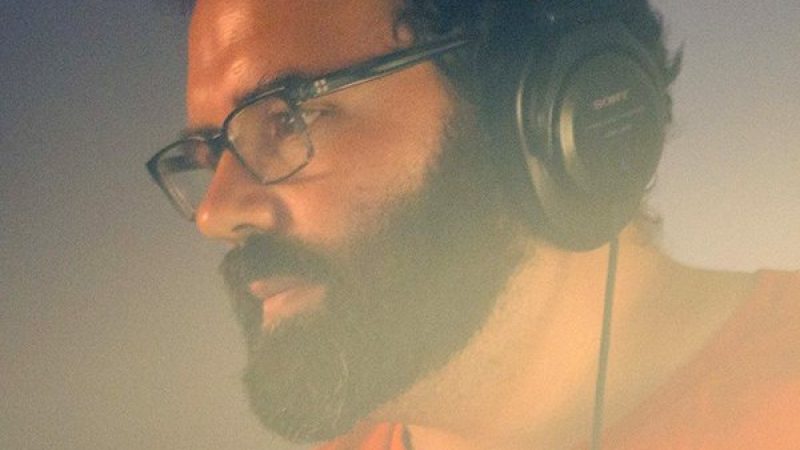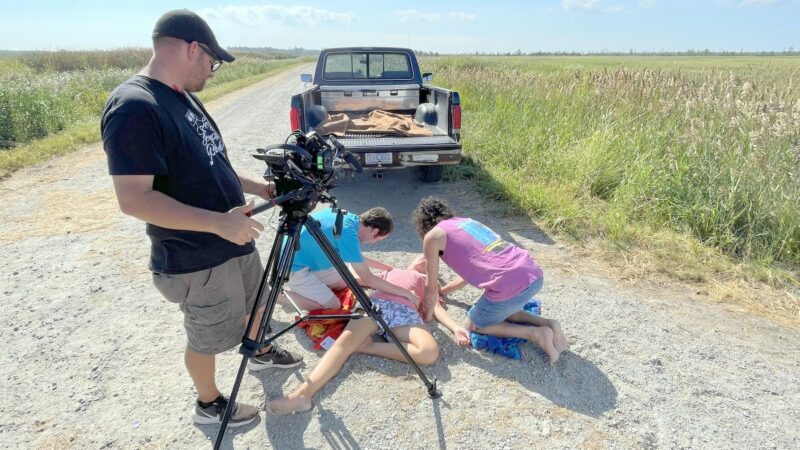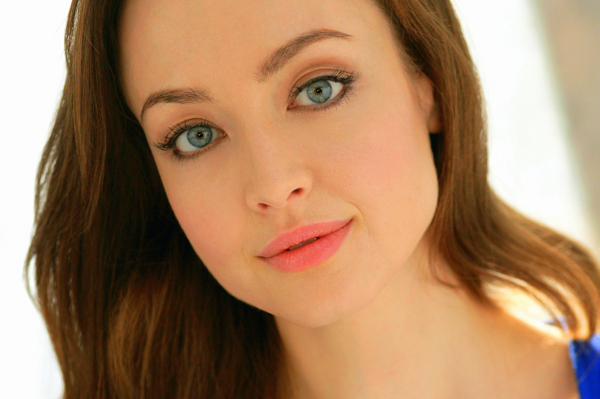
I can’t recall a time when I didn’t know I wanted to be an actor. The desire to tell stories and inhabit different characters has always been a part of who I am. I recall first expressing my desire to be an actor to my mother after watching a TV movie when I was probably three or four years old. Another moment that really stands out was going to see a play in elementary school and being so blown away by the production that I needed to take part of it home with me. As part of the set design, there were sparkly sequins scattered all over the aisles of the theatre, and I stole one! Of course, the class bully saw me take it, made me throw it over a bridge and told me I’d go to jail if anyone else found out. I was terrified and felt guilty about it for months afterwards, but that didn’t dim my memory of the play itself.
Doing some typing homework with my brilliant fellow ninjas on the Eve of Christmas Eve! @bonniegillespie #SMFAninjas pic.twitter.com/9w46s58PWP
— Isabelle Z Boulton (@IsZboulton) December 24, 2015
My school was very academic and had no theatre program, but I took a few acting classes outside of school and my friends and I found ways to put on plays after school, in spite of the school’s lack of support. But it was hard to envision acting as a career. I earned a French Baccalaureate in Sciences, and a B.A in Economics and Literature. I was even considering a career in the nonprofit sector, for a humanitarian or labor-rights organization, when I realized I’d regret it forever if I didn’t pursue what I loved.
Terry Gross, host of the NPR show “Fresh Air” was recently interviewed by the New York Times about her career, and her definition of an artist really struck me as the perfect expression of what being an actor means to me. She said: “ [artists] are ‘the people we designate to open up their lives for examination so we can understand better who we are.’ They offer up their own stories as ‘what Updike called ‘specimen lives,’’ she said. ‘‘Examples of what it’s like to be human.
Did you study acting
“I study with Clyde Baldo and Sarah Baskin at AGR, and they are both amazing teachers.” I studied acting in the Conservatory program of the Stella Adler Studio of Acting in NYC, and I take classes with various teachers on an ongoing basis. There are two teachers whose approaches/techniques were life-changing for me: Joan Evans, the master teacher of the Physical Acting Department at Adler, and Harry Ford, an extraordinary actor and teacher who led a clowning/Shakespeare class In New York. They both taught me how to truly access and use my instrument
What acting technique do you use
Process is so personal and individual. I draw from a variety of approaches I’ve learned along the way, but so much of my process is deeply intuitive. I would say my goal is to be truthful moment to moment, and to breathe properly.
What wrong impressions do actors hold about acting
Make no mistake; show business is exactly that, a business. If you are pursuing acting as a profession, it is a mistake not to give the same importance to learning the ins and outs of how this business works, as you would give to practicing your craft. Educate and empower yourself!
Do you take courses to improve your craft
I absolutely take classes regularly! It’s important to keep things fresh by practicing my craft and challenging myself to try different things. Currently I’m studying voiceover with Anna Garduno. I miss clowning, so I think it would be fun to take a clowning class soon, and I’m looking forward to taking an on-camera class at the Actors Green Room in the New Year.
What acting books do you read
I like to refer back to “Freeing the Natural Voice” by Kristin Linklater. “How to Stop Acting” by Harold Guskin was a revelation for me when I read it right after Conservatory. I adore “The Actor’s Chekhov” by Jean Hackett. It is a compilation of interviews of many of the great actors who performed Chekhov at the Williamstown Theatre Festival. Reading their thoughts on their processes and their experiences feels like taking master classes with them. And the best book out there on the business side of acting is “Self-Management for Actors” by Bonnie Gillespie. I cannot recommend it enough.
How do you keep fit as an actor
Performing takes stamina, and the daily pursuit of this career can be grueling! I try to eat healthy, stay hydrated, sleep enough and maintain a decent level of fitness. I also take care of my emotional and spiritual health by surrounding myself with supportive, kind people, by meditating and journaling, and by practicing yoga. But sometimes having a drink or eating a whole pint of ice cream is ok! I try to listen to what my body tells me and to be gentle with myself. I also like to do regular vocal work; it keeps me fresh and connected to my body.
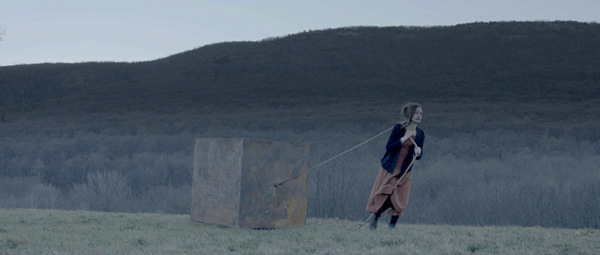
Isabelle Zufferey Boulton in The Great White
How do you prepare for a role
To me, the text is central to the work; all the information is there. I try to get off-book right away because I start to understand the character when I start to understand her thought process – which reveals itself in her choice of words, her phrasing, her rhythm, etc.
How do you take a character in a script to a honest, believable and breathing person
Once I’m finished a more formal script analysis – breaking down the different moments and gathering information about circumstances and relationships with other characters, etc. – I try to relate, as a human being, to the core human experience the character is having. Then I need to find the character physically, so I get on my feet and play!
How do you stay fresh on set
I try to stay as rested, hydrated and relaxed as possible, and I trust in my preparation.
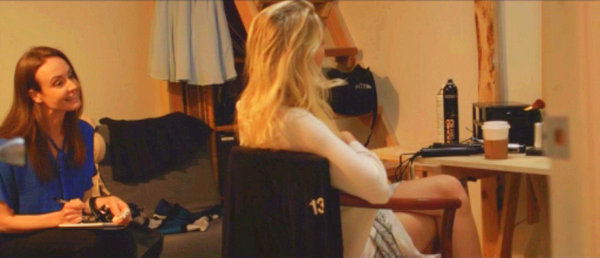
Isabelle Zufferey Boulton as the magazine journalist in “By Any Means”
Describe a memorable character you played
Diane, a character in a script called “Blackout,” is one of the most memorable characters I have played. The performance was produced by Black Lodge Theater, an innovative theatre company based in NYC. Under the title of “Passing Through: Room 603,” they staged as three short plays the three episodes of an HBO series produced by David Lynch in 1993. In the third play (or ‘episode’), my character and her husband are visiting New York when the city experiences a massive power failure. In the dark, the audience slowly learns that the couple recently lost their son in a drowning accident. As a result of her grief, Diane has lost her grip on reality. The script is beautifully written, multi-layered and full of symbolism. It was fascinating to make sense of Diane’s words, to put myself in her shoes and struggle with that grief and guilt. She certainly blames herself for her son’s death, and a lot is left up to the imagination in the script, so it was a fascinating process to fill in those gaps and invent for myself the imaginary world she has created to escape her pain..
Explain one creative choice you took on set
One creative choice that really stands out for me occurred during rehearsals for a production of “Platonov.” I played Sasha, and the director and I had been working on figuring out Sasha’s reaction to her husband’s shooting at the end of the play. I can certainly cry on cue, but that didn’t seem like a truthful reaction. Sasha is a character who is quiet, largely overlooked and underestimated by the other characters in the play. Her husband neglects her, belittles her and is unfaithful to her. And yet she loves him. I had a realization one day that in life, a person who experiences a shock or a great loss will not necessarily react as dramatically as we imagine. I think that those reactions are often delayed, or very very quiet. I think I was reading an article about a mother finding out that her son had died in combat and just going back to sweeping the floor. Something about that resonated with me and my idea of Sasha. So in rehearsal, I took a moment to take in my husband’s dead body, then turned away and walked around the room very slowly, tidying it up: I picked up a sweater on the floor and folded it, fluffed some pillows… It was so powerful. The director loved it – she said it gave her goosebumps – and I got amazing feedback from the audience each night.
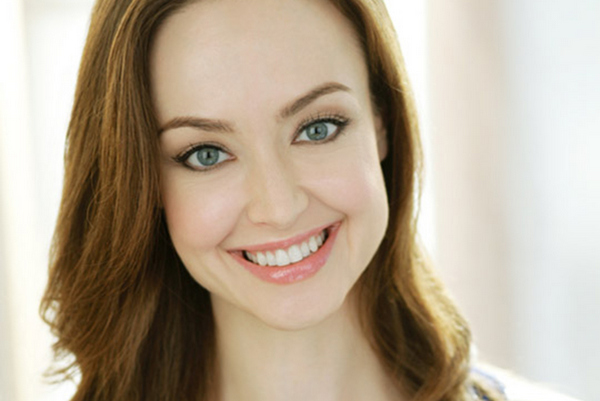
What do you want most from a director
Good communication and mutual trust.
What actors do you long to work with
There are so many! But I’m going to dream really big and say Cate Blanchett and Julianne Moore.
Why
They are living legends. Their performances sparked my journey and continue to inspire it. Their work is extraordinarily brave, vulnerable and present, all things that I strive for in my own work.
What advice would you give to actors
Be yourself. You are unique, and that is what makes you castable. Don’t compare your journey to the journey of others, and forget about competition! Put yourself out there in spite of your fear. You are enough, right now. Find your community. Invest your time in your interests and personal relationships outside of acting; they will sustain you when things are challenging. And most importantly, be kind and supportive. We are stronger as collaborators than as competitors!
Briefly write about your career
I am a New York-based Swiss-Canadian actress pursuing work in commercials, film and TV. I am grateful to be able to work legally in the U.S., Canada and all over Europe.
I recently shot the part of a magazine journalist in “By Any Means”, a thriller produced by Triventure Films – my first credit in an indie feature. I also recently shot the lead role in “The Great White.” It is the second film in The Writers Trilogy, a trilogy of short surrealist films co-produced by the Band Late Sea as a companion piece to their music. The project was co-produced and directed by the amazing filmmakers of Noka Productions, with the generous support of the Kevin Spacey Foundation. I play Ana, a recurring character and the main character’s nemesis, in the comedy web series “Honestly, Amelia.”
INTERVIEWS
In Conversation with Michael Oblowitz Director of Confidential Informant
Confidential Informant stars Mel Gibson, Dominic Purcell, and Kate Bosworth

